Search Results for Tag: climate change
35,000 walrus – our #numberoftheweek
Alaska has seen a magnificent but also alarming natural spectacle a few days ago, when 35,000 walrus climbed a beach in the north-west of the US state. According to the National Oceanic and Atmospheric Administration (NOAA) the gathering of walrus on shores is related to the loss of summer sea ice because of a warming climate. But an intact ice sheet is essential for the survival of the pacific walrus. They need it as a place to rest, because walrus cannot swim indefinitely.
The animals usually dive from the icy rocks down to the bottom of the Bering Sea to hunt for snails, worms and mollusks. They even give birth on ice. During the summer period the walrus follow the receding melting ice sheet up to the Arctic Ocean which is much deeper than the Bering Sea. With a shrinking ice sheet the walrus lose the place to rest they rely on, and they find less food because they no longer reach the bottom of the sea.
That’s why walrus are heading for beaches for rest. The first individuals of the current wave were spotted in mid-September and have been moving on and off-shore since then. An additional problem of a mass beaching like this is the danger of stampedes among the animals, killing mostly the young.
Pollution by burning trash – #numberoftheweek: 41
More than 40 percent of the garbage that we produce is burned unregulated, estimates a new study led by the National Centre for Atomspheric Research. These fires are responsible for blowing gases and particles into the atmosphere. You can guess that this is not exactly healthy, neither for humans nor the climate.
How did the researches manage do collect the data? They could hardly visit every open fire around the globe to measure the influence of it’s smoke.
Instead they compared population figures and per capita waste production with official tallies of trash disposal for each country in the world. The result is that 1.1 billion tons, or 41 percent, of the total waste generated worldwide is disposed of through unregulated burning every year: our #numberoftheweek.
The study also offers the opportunity to check if your country is among the biggest polluters. If you are living in China, the United States, India, Japan, Brazil, and Germany you belong to the top waste producers worldwide. But if you call China, India, Brazil, Mexico, Pakistan, and Turkey home, your nation belongs to the greatest emitters of pollution from trash burning.
Sturdy corals defy global warming
So far, we’ve believed that reef-building corals around the world are hugely vulnerable to rising ocean temperatures and can suffer bleaching as a result. But, scientists recently discovered a coral species that can actually seem to adapt to warmer weather.

Not exactly Acropora hyacinthus, but another coral of the Acropora family (Photo credit: CC BY 2.0: Will Thomas/Forge Mountain Photography)
Remember your last trip to the sea? You probably recall how the water around you felt warmer the closer to the beach you were and colder the farther you swam out to sea. And while you can move from colder to warmer water and the other way round, corals cannot. They stay put in their surroundings. So, researchers decided to look at how the same coral species can deal with different water temperatures.
Along the coasts of American Samoa, coral Acropora hyacinthus lives and grows on the reefs. Water levels shift due to the tides, leaving the corals along the flatter beaches covered with less water during low tide. This water can be heated up more easily by the sun, periodically exposing the corals to a warmer environment.
Stephen Palumbi from the University of Stanford and his team collected both: Acropora hyacinthus corals from flatter areas and also ones from the deeper, cooler sea. Next, they put all the corals in so-called “stress tanks” where the scientists could deliberately alter water temperature.
When substantially heating the water in the stress boxes, the researchers made a crucial observation: the corals collected from the deeper, cooler sea died. But the ones collected from those exposed to periodically warmer areas survived. They were already used to warmer temperatures and changing temperatures and thus able to adapt, researchers concluded.
Palimbo states in a video: “Now, the real hope for the stress tanks is to take them elsewhere in the Pacific and find other corals that are just as strong as the ones we found here in American Samoa.”
Impressions from the UN climate summit in Warsaw
Journalists from all over the world come to Warsaw to report on what is happening at the 19th climate conference. In a short interview four of them describe their impressions.
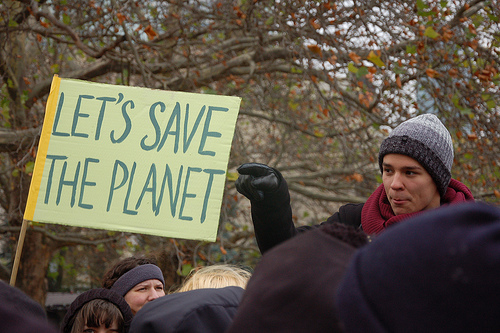
On November 16, people from around the world took to the streets outside the UN Climate Talks in Warsaw (COP19) to demand climate justice. (Photo credit: CC BY NC SA 2.0: Jamie Henn/350.org)
What are the most pressing climate issues in your home country? Are those issues addressed at all in this conference?
Giuliana Miranda, Brazil: The intensification of the extreme weather events is a hot topic in Brazil. As presented in the last World Meteorological Organization report, released earlier this week here in Warsaw, the water cycle has already changed in my country. We are facing severe drought in several parts of the the territory, specially the northeast and in central Brazil. Fortunately, the subject is being discussed here, but it doesn’t mean we are getting closer to a solution.
Jessly Obando, Nicaragua: Diseases related to climate change. There really is not as much information as I would like, especially in the Central American region.
Esteban Bonco Lugo Perea, Colombia: Carbon market projects, which so far have been addressed but not specifically about my country or the region.
Nivedita Khandekar, India: India may not need finance but it is taking up cudgels on behalf of the developing countries. Emission reduction is an issue and I am confident our negotiators are not going to budge to the demands of rich countries. Also, India has successfully managed to remain out of the trap – and also lead all developing countries – where rich countries wanted poor countries to include agriculture and cattle related emissions.
Bhrikuti Rai, Nepal: This year’s delegation focuses mainly on financing for the national adaptation plan and pushing for the loss and damage in every platform. However, the pressing climate issues remain: dealing with erratic rainfall, melting glaciers and the risk of glacier lake outburst flooding and most importantly dealing with the aftermath of theses kind of disasters. But during this COP, these issues will likely be lost in technical jargon which is more related to the financial aspects.
How is the performance of your Delegation so far? Do they try to solve the problems or are they part of the problems?
Giuliana Miranda, Brazil: Brazil kept a team of very experienced delegates during the last meetings, but for various reasons, the main representatives of the delegation have changed in 2013, including the chief negotiator. He might have faced some scepticism at the beginning, but seems to be doing a good job. The Brazilian proposal to look at the historical responsibility for global warming is now a position for the entire G77 group and China.
Jessly Obando, Nicaragua: Well, so far they have only been devoted to criticizing, but I see that they are now contributing to a change.
Esteban Bonco Lugo Perea, Colombia: After speaking to the chief negotiator of my delegation, I must say the government has good intentions and is doing everything it can to have as best an outcome as possible.
Nivedita Khandekar, India: They are very good negotiators. Not just for India, they have been successfully doing it for a whole lot of developing countries too.
Bhrikuti Rai, Nepal: Although Nepal chairs the group of least developed countries and it has made its presence comparatively visible compared to other COPs, the Nepali delegation doesn’t seem to be taking advantage of the new found visibility. From the meetings I have been to it is clear that the members of the core negotiating team are the biggest drawback when it comes to addressing the problems, most of them aren’t even from the government and even if they are they are not from the departments concerned, so their presentation so far has been very superficial without really getting to the heart of the matter.
What do you think of the UN Climate Summit in Warsaw in general? Is it just a talk shop or a chance for real action?
Giuliana Miranda, Brazil: I think the parties do have a chance to start to make a difference here. We know this conference will not produce any kind of revolutionary agreement, but it’s a chance to set the basis for achieving commitments [at the UN climate summit] in Paris in 2015.
Jessly Obando, Nicaragua: I think they have the power to decide but not the will and those who really want change are seen as fanatics. In the first week I was disappointed and I truly hope that this week will see something more concrete.
Esteban Bonco Lugo Perea, Colombia: It must be an opportunity for action. The world will not forgive otherwise.
Nivedita Khandekar, India: The COP19 at the end of its first week does look like it is going to be only talk, talk and more talk. The rich nations, especially the USA, seem in no mood to work out a deal. But as Christiana Figueres, the COP executive secretary, said today, there is still time for hope. Fingers crossed.
Bhrikuti Rai, Nepal: I think UN Climate Summits help put on the table many pertinent climate issues but the fact that the bigger economies have the most say in these talks and they are the ones really steering the direction of the entire summit, the chance for real action is missed somewhere along the line when these countries decide to backslide on the commitments and pledges. The summit in Warsaw still has a week to go so it still cannot be said how the talks are going to turn, but the fact that the host country itself does not seem very keen to steer away from cheap fossil fuels, means that it is likely that the bigger economies might yet again postpone dealing with the pressing issues until next year.
What’s at stake at #COP19 talks in Warsaw?
What can the world expect from the next round of global climate talks in Warsaw in November? And will governments put money behind their climate pledges? Journalists from around the world had the chance to quiz Achim Steiner, head of the UNEP, in an online video conference organized by DW Akademie.
Web session with Achim Steiner (UNEP) from DW Akademie on Vimeo.



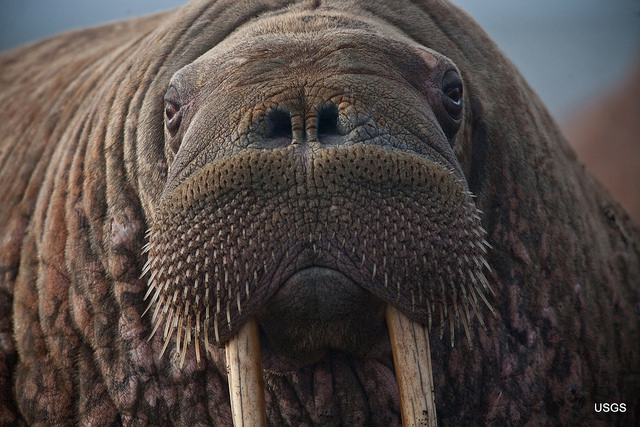

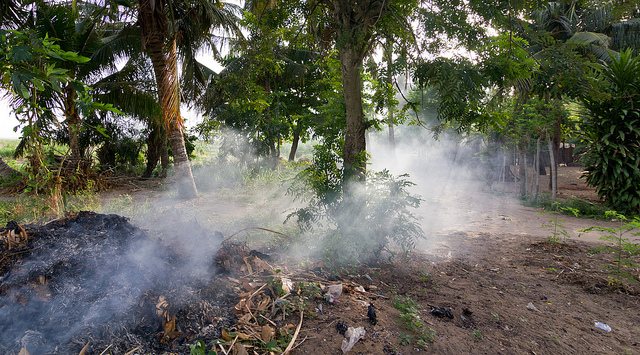
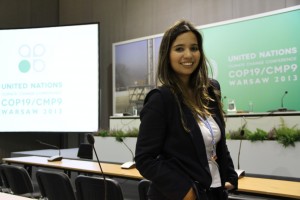


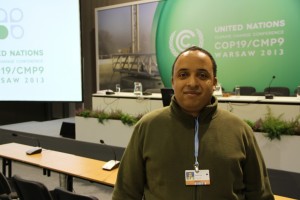




Feedback